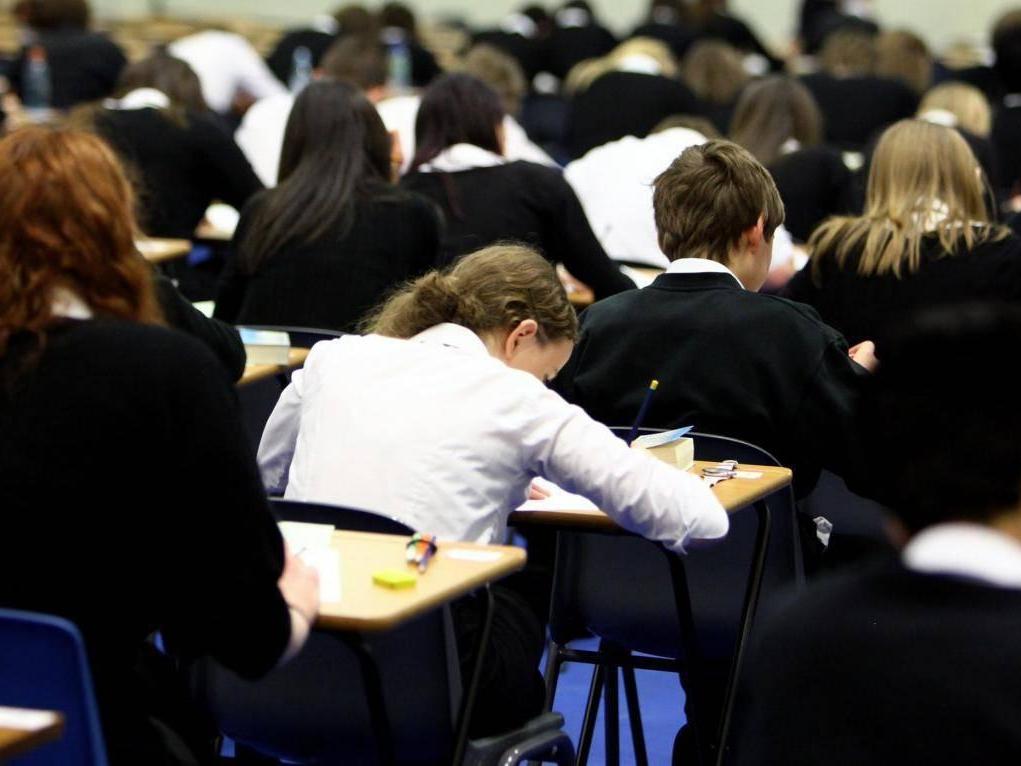Wealthy parents who pay for tutors to get children into grammar school should be taxed to fund poor pupils, study suggests
Report finds 70 per cent of children in England who were tutored secured grammar school place – compared with 14 per cent of those who had no additional instruction

Your support helps us to tell the story
From reproductive rights to climate change to Big Tech, The Independent is on the ground when the story is developing. Whether it's investigating the financials of Elon Musk's pro-Trump PAC or producing our latest documentary, 'The A Word', which shines a light on the American women fighting for reproductive rights, we know how important it is to parse out the facts from the messaging.
At such a critical moment in US history, we need reporters on the ground. Your donation allows us to keep sending journalists to speak to both sides of the story.
The Independent is trusted by Americans across the entire political spectrum. And unlike many other quality news outlets, we choose not to lock Americans out of our reporting and analysis with paywalls. We believe quality journalism should be available to everyone, paid for by those who can afford it.
Your support makes all the difference.Families who use private tutors to help their children pass the grammar school entrance test should pay extra tax to allow poorer children to have the same support, it has been suggested.
Academics from the University College London’s Institute of Education (IoE) found that the least well off children had less than a 10 per cent chance of attending a grammar school, compared with a 40 per cent chance for children from wealthier families.
The authors – who examined 1,800 children living in selective areas – say a tax should be imposed on high-income families to help level the playing field in access to selective schools.
The report found 70 per cent of children in England who were tutored secured a place in a grammar school, compared with 14 per cent of those who had no additional instruction.
In England, for each £100 increase in family income, there was a six-percentage-point rise in the chances of a child receiving coaching for a grammar entrance test.
Professor John Jerrim, author of the study, said: “The Government claims that expanding grammars will boost social mobility. But our research shows that private tuition used by high-income families gives them a big advantage in getting in.
“The Government therefore needs to explain how they are going to level the playing field between different income groups.”
He suggested an extra tax for those who used private tutors could be introduced – and that the money could then be distributed among lower-income families to help provide them with extra tutoring.
The study comes after Theresa May’s proposals to lift the ban on creating new grammar schools were dropped in the wake of the general election result.
But the 163 existing grammar schools in England are still allowed to take on more pupils – and a number of selective schools are planning to expand by opening satellite sites.
And this week, a report revealed that the majority of parents (52 per cent) surveyed believe that Ofsted should inspect the level of private tutoring in schools to give a more accurate picture.
It said: “Parents ... felt that high levels of private tutoring could reveal weaknesses in the education provided by schools.
“Typically, their view was that private tutoring could inflate exam results and, by monitoring it, inspectors would get a more accurate reflection of the school.”
But parents who said the level of private tutoring should not be considered during an Ofsted inspection considered the choice to be a private family matter that can occur for a number of reasons – including coaching for the 11-plus entrance exam for grammar school.
Join our commenting forum
Join thought-provoking conversations, follow other Independent readers and see their replies
Comments